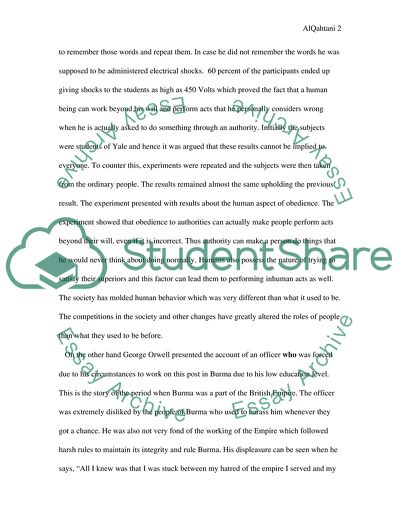The Morality of Human Beings Literature review Example | Topics and Well Written Essays - 1500 words - 16. https://studentshare.org/literature/1739810-essay
The Morality of Human Beings Literature Review Example | Topics and Well Written Essays - 1500 Words - 16. https://studentshare.org/literature/1739810-essay.


